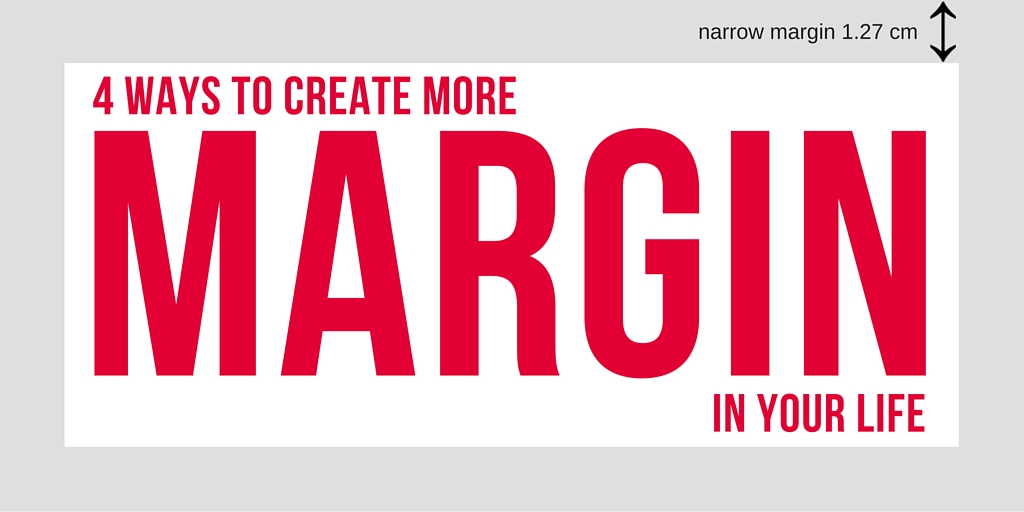Four Ways to Create Margin in Your Life
 I was crazy busy. The church where I had been serving as a senior associate pastor had asked me to fill in as lead pastor while we searched for a new lead. I was trying to do both jobs and found myself running way too fast.
I was crazy busy. The church where I had been serving as a senior associate pastor had asked me to fill in as lead pastor while we searched for a new lead. I was trying to do both jobs and found myself running way too fast.
During this intense time, I came across a book called, Margin: Restoring Emotional, Physical, Financial, and Time Reserves to Overloaded Lives by Richard Swenson. Swenson, a medical doctor, reflects on a time when he was very busy with his practice and speaking engagements. One night, he and his wife sat down by the fireplace. They wrote down all of their commitments/responsibilities on a piece of paper. They then crumpled up the paper and threw it into the fire. They decided to start fresh - to reset their lives with margin, believing that this is what God wanted them to do. They took out a new piece of paper and began writing down the things they felt God wanted them to focus on.
In many ways, it felt like my life was out of control. I longed to be able to do what the Swensons did. Little did I know that God would give me that opportunity.
Over the next year and a half, my wife and I sensed that God was calling us into a new ministry. This transition gave us the opportunity to think afresh about our life purpose and what we thought God wanted us to pursue. The key for us was to plan with the idea of margin in mind. How could we position ourselves for long-term effectiveness? How could we live to have discretionary time, energy, and other resources so that we could respond more rapidly to the needs and opportunities that God placed before us and to process life in a deeper way?
Here are four margin-protecting practices that have been important for us:
1. Schedule “down time”
If we schedule “down time” into our calendars, we’re more likely to do it. It’s also easier to say "no" to a pressing demand when we already have something else scheduled at that time. We can honestly say, "I have another commitment on my calendar that I need to honour."
2. Set boundaries
It’s important to put fences around the time and activities we need for restoring ourselves. For example, we generally don’t answer our phones during meal times.
3. Unplug from technology periodically

 Thanks to King Cyrus, the Jews were allowed to return to their homeland to rebuild the temple. After the Jews had settled in their towns, they met in Jerusalem en masse (
Thanks to King Cyrus, the Jews were allowed to return to their homeland to rebuild the temple. After the Jews had settled in their towns, they met in Jerusalem en masse (